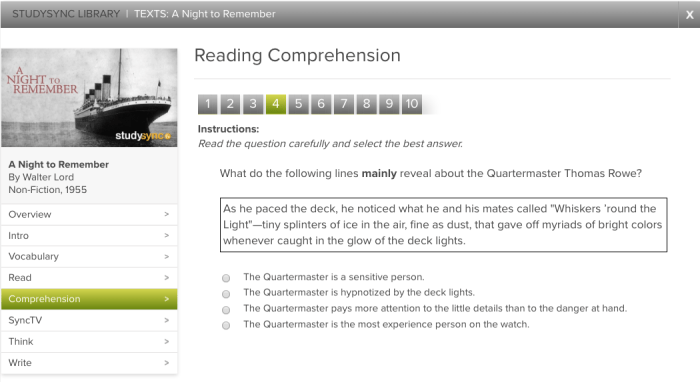Text dependent questions commonlit answer key – Delving into the realm of text dependent questions (TDQs) and the Commonlit Answer Key, this guide unravels the significance of these tools in fostering students’ comprehension and critical thinking abilities. As educators, we embark on a journey to explore the types of TDQs, the purpose of the Commonlit Answer Key, and effective strategies for incorporating them into our teaching practices.
TDQs serve as a cornerstone in assessing students’ understanding of texts, prompting them to engage in close reading and delve into the nuances of the content. The Commonlit Answer Key provides a valuable resource for evaluating student responses, guiding feedback, and differentiating instruction.
Together, TDQs and the Commonlit Answer Key empower educators to nurture students’ comprehension skills and cultivate a deeper understanding of the texts they encounter.
1. Definition and Purpose of Text Dependent Questions: Text Dependent Questions Commonlit Answer Key
Text dependent questions (TDQs) are questions that require students to use a specific text to answer. They are designed to assess students’ comprehension of a text and their ability to think critically about it. TDQs are an essential part of close reading, which is a process of reading a text carefully and critically to understand its meaning.
TDQs can be used to assess students’ comprehension of a text at different levels. Literal questions require students to identify information that is explicitly stated in the text. Inferential questions require students to make inferences based on information in the text.
Evaluative questions require students to evaluate the text and make judgments about it.
2. Types of Text Dependent Questions
- Literal questionsrequire students to identify information that is explicitly stated in the text.
- Inferential questionsrequire students to make inferences based on information in the text.
- Evaluative questionsrequire students to evaluate the text and make judgments about it.
Each type of question requires different cognitive skills. Literal questions require students to use their basic reading skills. Inferential questions require students to use their critical thinking skills. Evaluative questions require students to use their higher-order thinking skills.
3. Commonlit Answer Key
The Commonlit Answer Key is a resource that provides answers to TDQs for Commonlit texts. The answer key can be used to evaluate student responses and to provide feedback. The answer key is organized by text and question type. It includes both literal and inferential questions.
The Commonlit Answer Key can be used to help students identify their strengths and weaknesses. It can also be used to help teachers differentiate instruction. The answer key can be used to create small group activities or to provide extra support for struggling students.
4. Using TDQs and the Commonlit Answer Key in Instruction

- Incorporate TDQs into lesson plans.TDQs can be used as a pre-reading activity, during reading activity, or post-reading activity.
- Use the Commonlit Answer Key to guide instruction.The answer key can be used to identify common student misconceptions and to provide feedback.
- Differentiate instruction using TDQs and the Commonlit Answer Key.TDQs can be used to create small group activities or to provide extra support for struggling students.
Clarifying Questions
What are the different types of text dependent questions?
TDQs can be categorized into literal questions, inferential questions, and evaluative questions, each requiring varying cognitive skills to answer.
How can I use the Commonlit Answer Key effectively?
The Commonlit Answer Key serves as a guide for evaluating student responses, providing insights into their understanding of the text. It can be used for formative assessment and to differentiate instruction.
What are the benefits of using text dependent questions in the classroom?
TDQs promote close reading, develop critical thinking skills, and enhance students’ comprehension of texts.